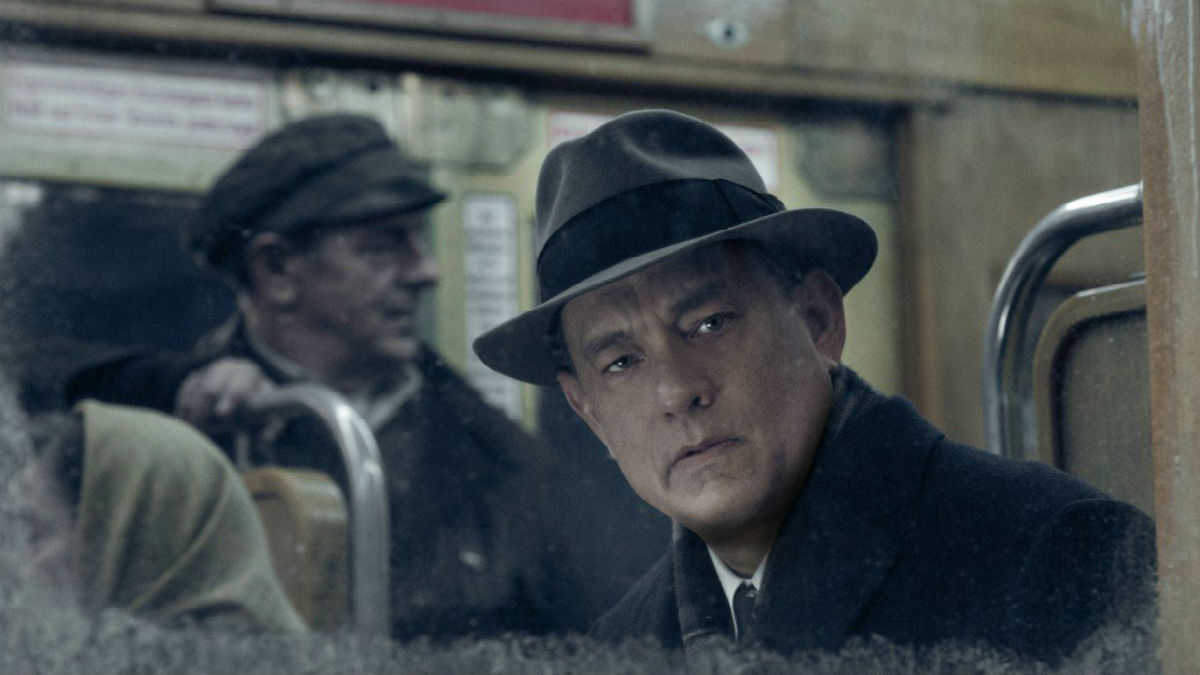Bridge of Spies: the real story behind Spielberg's Cold War film
Spielberg's film uses real events, but overplays its portrayal of Donovan as a lone freedom fighter

A free daily email with the biggest news stories of the day – and the best features from TheWeek.com
You are now subscribed
Your newsletter sign-up was successful
Warning: Contains spoilers for the film Bridge of Spies
Steven Spielberg's new movie, Bridge of Spies, which opens in UK cinemas this week, is based on a real-life incident during the Cold War. The film has received critical acclaim, but does it use too much artistic licence when depicting past events?
Tom Hanks stars as Brooklyn family man and insurance lawyer James B Donovan, who takes on the unpopular job of defending a Russian spy, Rudolf Abel (Mark Rylance).
The Week
Escape your echo chamber. Get the facts behind the news, plus analysis from multiple perspectives.

Sign up for The Week's Free Newsletters
From our morning news briefing to a weekly Good News Newsletter, get the best of The Week delivered directly to your inbox.
From our morning news briefing to a weekly Good News Newsletter, get the best of The Week delivered directly to your inbox.
The screenplay, written by Matt Charman, with Joel and Ethan Coen, is based on real events during the late 1950s and early 1960s, when Cold War tensions were at their height. The Hollywood Reporter has called it an "impeccably rendered recreation of a moment in history", while the main source for the film was Donovan's own memoir of the case, Strangers on a Bridge, published in 1964.
The real James B Donovan was a partner in the New York based law office Watters and Donovan and, just as in the movie, he was asked to defend the Soviet spy Rudolf Abel, after many other lawyers refused. Donovan lost the trial, but was successful in arguing against the death penalty for Abel.
The movie suggests that Donovan suffered a campaign of hostility for his principled stance, including rejection by his lawyer partners and shots fired through his window, but other sources suggest that these incidents were invented, and that while his family experienced some criticism, including angry letters and middle-of-the-night phone calls, many respected his commitment to standing up for American freedoms, such as the right to a fair trial.
Later, Donovan was called on again to help organise a prisoner exchange. A US Air Force captain, Francis Gary Powers, had been shot down while flying a U2 spy plane over the Soviet Union. The US claimed that Powers had fallen unconscious while flying a weather plane, drifted off course and crashed into Soviet territory.
A free daily email with the biggest news stories of the day – and the best features from TheWeek.com
However, documents recently made public by the CIA reveal that Powers's spy flight, known as Operation Grand Slam, was the 24th "Deep-penetration overflight" of the Soviet Union, says the Washington Post.
The Soviets claimed Powers had admitted to spying and sentenced him to ten years in prison. Donovan successfully negotiated his return, along with an American student arrested in Berlin, in exchange for returning Abel to Russia.
In the film, Donovan is shown not only battling Soviet and East German authorities, but also facing hostility from his own side.
David Kaiser in Time says that while the key events are all true, the film overplays its portrayal of an America blinded by anti-Communism and terror of nuclear war. For example, Kaiser criticises a scene in the film showing a schoolgirl bursting into tears when her teacher explains how to respond to a nuclear attack.
While classes like that happened, says Kaiser, the film "misses the point" that in the 1950s people of all ages were taught to cope with tragedy, remain calm and do their jobs. That was what Donovan was doing when he took the case.
At that time, many men and women were sincerely devoted to American freedoms and the ideal of fair play, says Kaiser, adding that, while Donovan was certainly one of them, "it is a disservice to a whole generation to pretend that he was practically the only one".